Most the stuff I shoot is HDR, or “High Dynamic Range” photography. I’ve described HDR and my process in a little bit more detail in one of my previous blog posts. In a nutshell, HDR allows you to capture the scene more like how your eyes see it. Your eyes see large ranges of lights and colors, and your camera sensor doesn’t (really). HDR is made up of multiple photographs of different exposures. Usually 5 total from -3 to +3 exposures. There. Now you’re caught up.
For years, the HDR “process” has gotten a lot of flack, mostly from other “professional” photographers. Notice how I use the word process (and professional) in quotes…well, that’s part of the debate. Some “professional” photographers view HDR photography as only a post-production process or technique. Some see HDR as ruining the art of photography for whatever reason. And I believe that most see it as a threat to the crap that they churn out of their cameras.
I’m writing this blog post because recently 2 articles caught my attention and got me fired up. The first article, was from Pixiq called: High Dynamic Range is ONLY a Technique. The other was an article about how the Washington Post used an HDR image, and spurred a debate amongst photographers. You may want to check out both of those articles prior to reading my response or rant or whatever you think it is.
First off, let’s get this straight: ART IS SUBJECTIVE. Photography is art, yes? Yes. OK, now that the groundwork is set, I can move on…
So, the first article by Pixiq wasn’t slamming HDR, but I could feel the open-ended invitation for other photogs to slam it, or give their “opinion” on it.
“Shooting things that are neglected, abandoned, dilapidated, derelict, old, vintage, weathered, and aged seems to dominate the common practice of HDR photography. Old cars, abandoned interiors, old buildings, ruins, antiquated objects are subjects that many HDR imagers photograph. The process lends itself to making those things seem more distressed, more dramatic and older in appearance.”
The article then injects opinion by leading with the word “however” in regards to HDR processing.
However, HDR has a way of producing imagery that looks a bit hyper real. If used to extreme, the results will take on a less photographic look than what we might expect. HDR is used by some to produce imagery that looks garish and otherworldly. Cartoonish is one of the most common comparisons.
Right there is what got me going. Again, lets go back to art being subjective…
The next article was about the Washington Post running an HDR image on their front page, thus sparking controversy with “professional” photographers.
Here’s the image in question:

Net net is that the Post ran a photo about the Air Florida jet that crashed into that bridge over 30 years ago. The photo editors decided to add a caption explaining that the photo was processed using an “unconventional” method. They opted against explaining what HDR is because they felt it would go over the readers’ heads, and opted for the following quote:
This image is a composite created by taking several photos and combining them with computer software to transcend the visual limitations of standard photography.
I think this misled people. When you use the term “composite”, people immediately think that elements were added to the photo that weren’t normally there, rather than educating them on what High Dynamic Range really is. What does it say about the readers’ where the Post doesn’t feel they can comprehend a logical description of what HDR is??? That’s a whole other blog post…
This photo got a lot of criticism from other photographers, including the President of the National Press Photographers Association, Sean Elliot, where he says:
HDR is not appropriate for documentary photojournalism. The organization’s code of ethics say photographers should respect the integrity of the digital moment, and in that light an HDR photo is no different from any other digital manipulation.
BULLSHIT. BULLSHIT. BULLSHIT. I completely DISAGREE. Again, back to that whole thing, “Art is subjective.” Who is anyone to say what is appropriate use of any art medium?
So, here are my thoughts on the whole thing. Yes, HDR can be overprocessed, or “overcooked” as we tend to say in the photography world. Does that make the image any worse? No. That artist or photographer decided to treat that image in a way that they thought was best to portray the emotion they are trying to evoke, or the story they are trying to tell. We tend to forget that art is subjective to each individual’s taste, emotion at that moment, style, or the story that is being told and interpreted. Art and photography is just like music. Depending on your mood, the “message” you get can be different than what you saw earlier.
For ME, HDR is a way for me to capture on camera exactly what my eyes saw. We often forget that camera sensors only capture a limited range of light and color, where our eyes capture a wide range of it. Again, if you read one of my previous blog posts on why I do HDR, I have some examples of before & after.
Anyway, what really got me riled up was the fact that they refer to HDR as mostly a post-processing effect. Is that true? Sorta, but not really. I consider myself a true HDR photographer, much like Trey Ratcliff, Elia Locardi, and the likes. What that means, is that when we are out shooting pictures, we are actively thinking about the HDR shot even before we shoot it.
Everything about our photography is HDR-planned. When we’re scouting a potential shot, we are looking at other things outside of composition: the dynamic light, what may cause ghosting, am I going to get kicked out for using my tripod…
When we take the shot, it’s not as simple as set your setting and fire away…it’s more methodical. We setup on a tripod. We gauge the lighting and scene, adjust our camera as needed, then we need to shoot our bracketed shots. Am I shooting into the sun? If so, I need 7 – 9 bracketed shots, if not, then 3 – 5 should suffice, and so on.
It’s a whole thing, not a “run and gun” scenario that I see a lot of photographers doing. Again, their images are not worse or better, it’s just different. In fact, one of my ALL TIME favorite photographers is Zack Arias, and I think he cringes at the thought of most HDR. It’s just 2 different art forms. Would I ever apply HDR to portrait work? Probably not.
So back to the issue that some “professional” photographers have with HDR…
I’ve read countless articles, blogs, and forums on the big HDR debate, however, I still can’t find any legitimate reason as to why some “professional” photographers loathe HDR. Here are some of the reasons that I have found:
- HDR makes photos look fake
- HDR makes photos look cartoonish
- HDR is a crutch to make a mediocre shot look great
- HDR trains people to like photos that are processed too much in post
Again, going back to the whole art is subjective thing. Yes, I can absolutely, 100% agree with each one of those bullet points above but would change the word “makes” to “can”. BUT. BUT. BUT, it all depends on what the artist was trying to accomplish.
Does this image look like any of the above bullet points? (click on it for larger version)
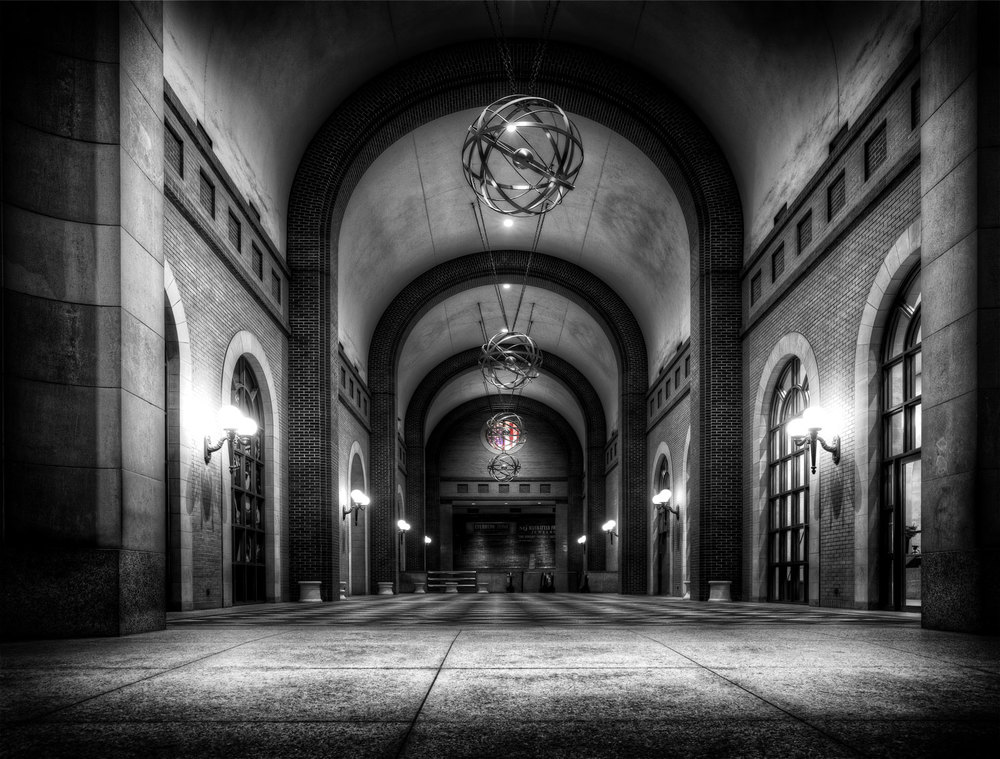
The above image is HDR. Does it look fake? No – in fact, there is hardly ANY post processing done on it. Does it look cartoonish? No. Is this a mediocre shot? Perhaps, but I’ve only been into photography for a year now.
I can tell you one thing – when I go out on a shoot and capture a really great shot – one that I spend a bit of time on. Time scouting, time setting it up, time being patient waiting for people to walk on by, time making sure my camera settings were exactly what I need, and time waiting for the sun/light to be perfect, that when it comes time to do the post production on the photo, THIS is where you get to finish telling the story of the photo. Again, as an artist it all depends on what emotion you are trying to evoke or the story you are trying to tell. Each photograph is different, and each story is unique.
I think photographers that bash HDR need to really take a step back, get off of their soap box, high horse, or whatever they’re on, and really think through bashing other forms of art. I wonder if Donatello talked shit about Michelangelo’s work??? Probably.
Anyway, photography, paintings, sculptures, etc are supposed to evoke an emotion or tell a story. It doesn’t matter how it’s done as long as the artist was happy with it, and other people like it.
Art is subjective.

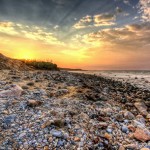
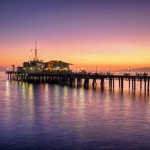
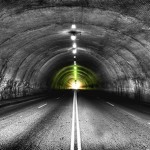
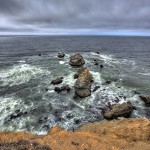
0 Comments